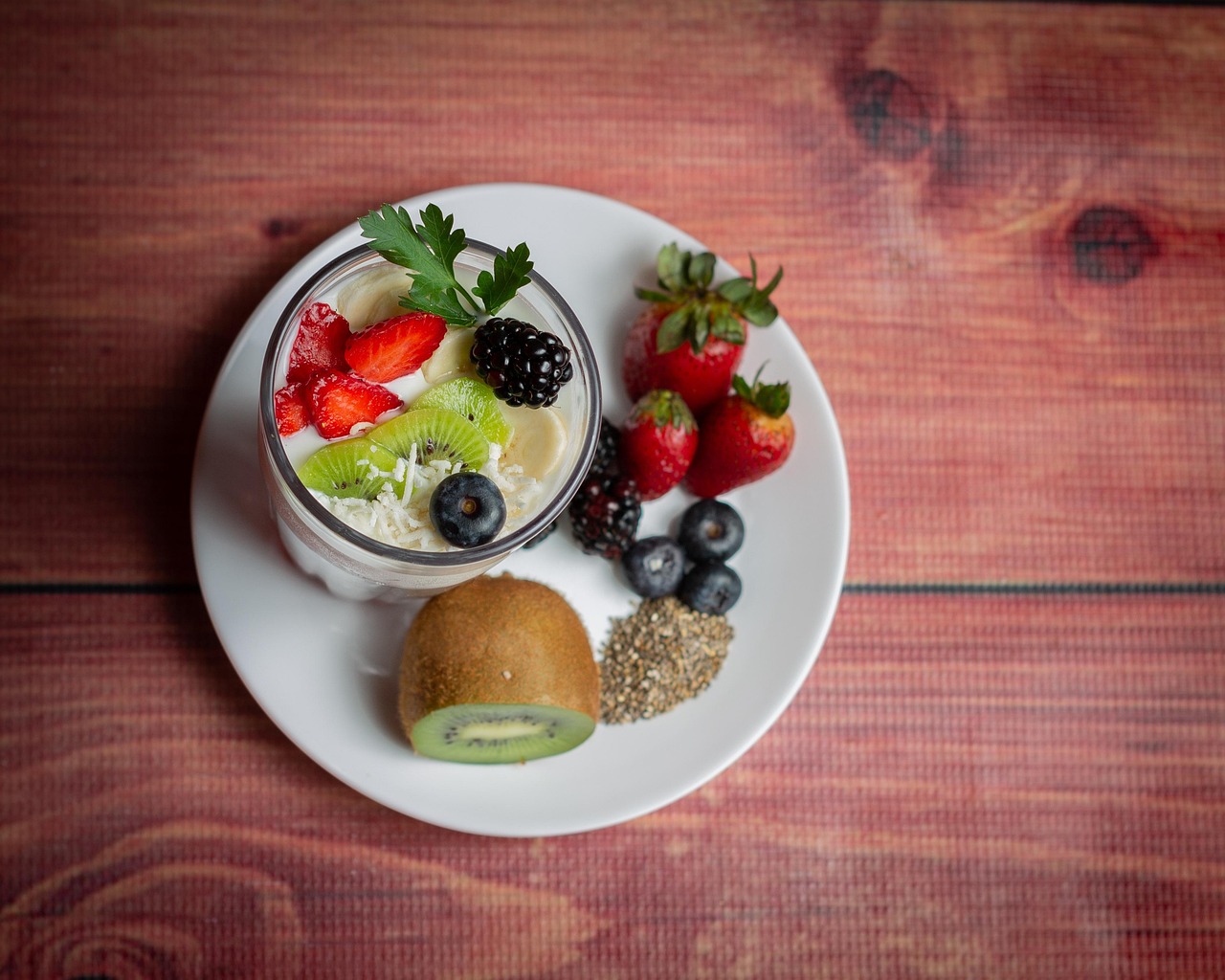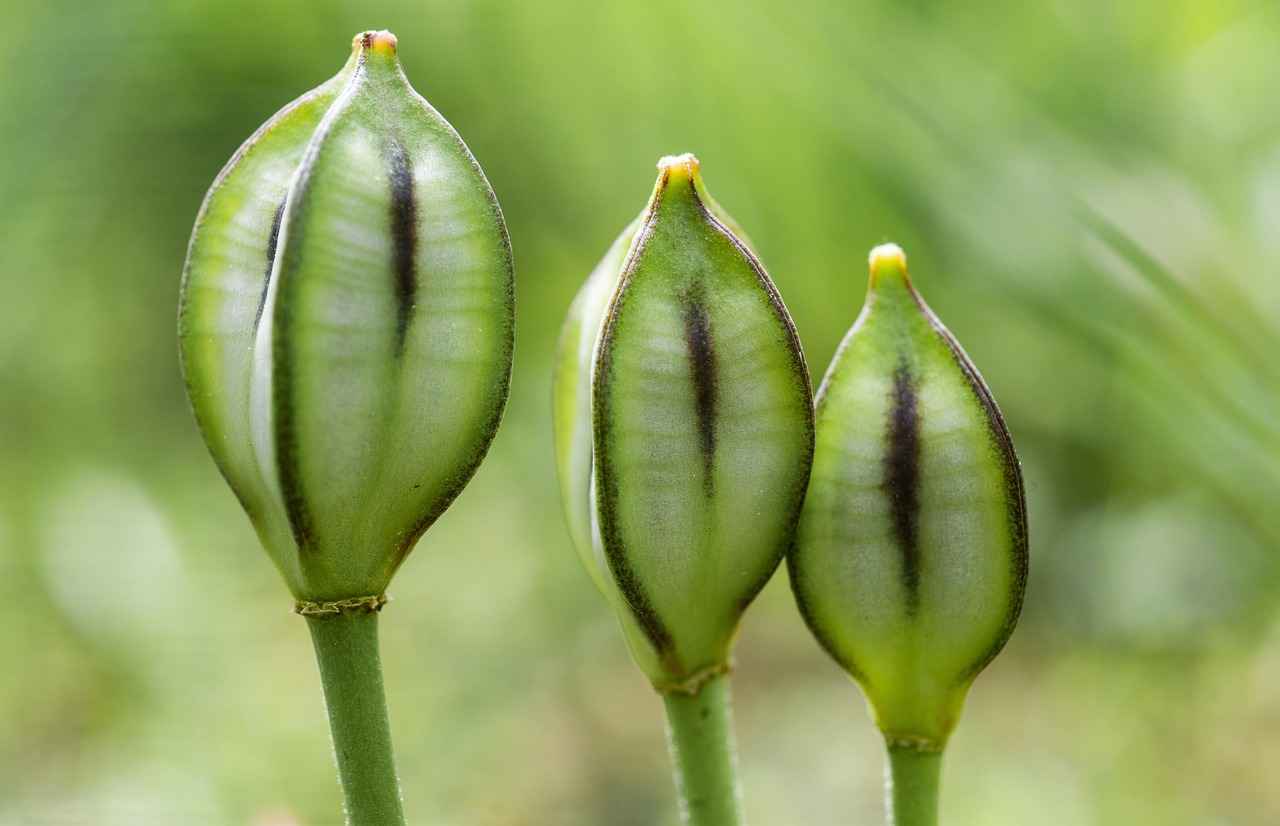Chia seeds, often hailed as a superfood, are small but mighty seeds that pack a significant nutritional punch. These tiny seeds have gained immense popularity due to their multitude of health benefits. In this article, we will explore ten compelling reasons to incorporate chia seeds into your diet, enhancing your overall wellness.
What Nutrients Are in Chia Seeds?
Chia seeds are a powerhouse of nutrients. They are rich in omega-3 fatty acids, fiber, protein, and various essential vitamins and minerals, including calcium, magnesium, and phosphorus. This unique nutritional profile makes them a valuable addition to any diet.
How Do Chia Seeds Aid in Weight Management?
One of the most notable benefits of chia seeds is their ability to assist in weight management. Due to their high fiber content, chia seeds can absorb up to 12 times their weight in water, expanding in your stomach and promoting a feeling of fullness. This can help control appetite and reduce overall calorie intake.
What Role Does Fiber Play in Weight Loss?
Fiber is crucial for digestive health and plays a significant role in weight management. Chia seeds provide a substantial amount of soluble fiber, which slows digestion and helps keep you satisfied longer, ultimately aiding in weight loss efforts.
How Does Fiber Impact Digestion?
A healthy digestive system is vital for overall wellness. The fiber in chia seeds contributes to regular bowel movements and helps prevent constipation, promoting a healthier gut environment.
Can Chia Seeds Help Regulate Blood Sugar Levels?
For those managing diabetes, chia seeds can be particularly beneficial. The soluble fiber in these seeds can slow down the absorption of sugar, helping to stabilize blood sugar levels and prevent spikes.
What Are the Heart Health Benefits of Chia Seeds?
Chia seeds are an excellent source of omega-3 fatty acids, which are known for their heart-protective properties. Regular consumption of chia seeds can help lower cholesterol levels, reduce inflammation, and support overall cardiovascular health.
Do Chia Seeds Promote Healthy Skin?
Rich in antioxidants and essential fatty acids, chia seeds can significantly benefit skin health. Antioxidants combat oxidative stress, which can lead to premature aging, making chia seeds a great addition to your skincare routine.
How Do Antioxidants Benefit Skin Health?
Antioxidants play a crucial role in maintaining youthful skin by fighting free radicals. Chia seeds are a rich source of antioxidants, which can help reduce signs of aging and promote a radiant complexion.
Can Chia Seeds Help Hydrate the Body?
Chia seeds have a unique ability to absorb water, making them an excellent source of hydration. By incorporating chia seeds into your diet, you can help maintain optimal fluid balance in your body, which is essential for overall health.
What Are the Benefits of Chia Seeds for Bone Health?
Chia seeds are also beneficial for bone health, providing essential minerals like calcium, magnesium, and phosphorus. These nutrients are crucial for maintaining strong bones and preventing osteoporosis.
How Can Chia Seeds Enhance Energy Levels?
For those needing a quick energy boost, chia seeds are an excellent source of energy-boosting nutrients. Their combination of protein, fiber, and healthy fats makes them a perfect addition to pre-workout meals or snacks.
Are There Any Risks Associated with Eating Chia Seeds?
While chia seeds offer numerous health benefits, it’s essential to consume them in moderation. Some individuals may experience digestive discomfort if they consume too many seeds at once. It’s advisable to start with small amounts and increase gradually to assess tolerance.
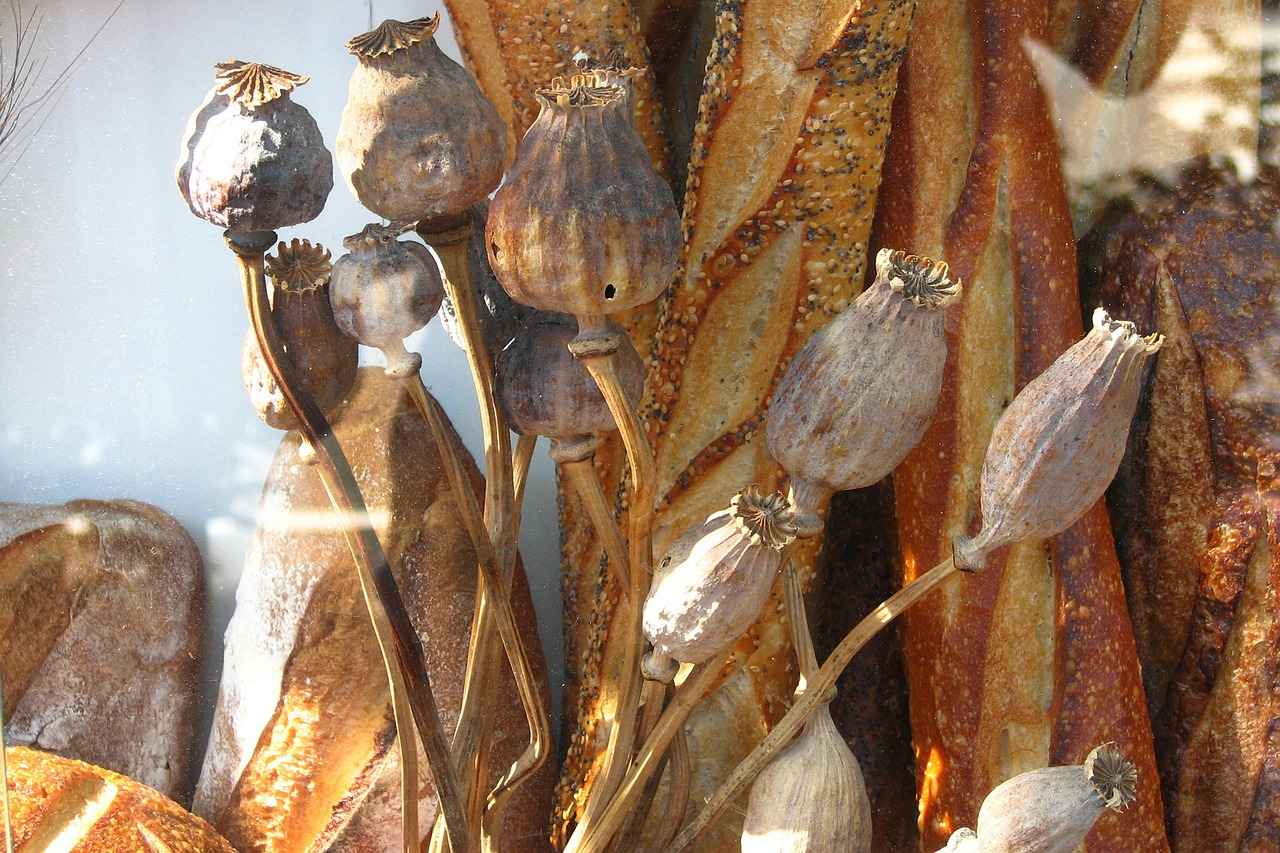
What Nutrients Are in Chia Seeds?
Chia seeds have gained immense popularity in recent years, often hailed as a superfood due to their impressive nutritional profile. These tiny seeds are packed with a variety of essential vitamins and minerals that contribute to overall health and wellness. Understanding the specific nutrients found in chia seeds is crucial for appreciating their numerous health benefits.
Chia seeds are remarkably nutrient-dense, providing a range of beneficial components that support various bodily functions. Here are some of the key nutrients found in chia seeds:
- Omega-3 Fatty Acids: Chia seeds are an excellent source of alpha-linolenic acid (ALA), a type of omega-3 fatty acid that is known for its heart health benefits. These fatty acids are crucial for reducing inflammation and supporting cardiovascular health.
- Fiber: With about 10 grams of fiber per ounce, chia seeds are a fantastic source of dietary fiber. This high fiber content aids in digestion, promotes feelings of fullness, and can assist in weight management.
- Protein: Chia seeds contain approximately 4 grams of protein per ounce. This plant-based protein source is essential for muscle repair and growth, making it a great addition to vegetarian and vegan diets.
- Vitamins: Chia seeds are rich in several essential vitamins, including B vitamins such as niacin, thiamine, and riboflavin. These vitamins play a vital role in energy metabolism and overall health.
- Minerals: Chia seeds are packed with essential minerals such as calcium, magnesium, and phosphorus. These minerals are crucial for maintaining strong bones, muscle function, and overall metabolic processes.
- Antioxidants: Chia seeds contain a variety of antioxidants that help combat oxidative stress in the body. This can contribute to reduced inflammation and lower the risk of chronic diseases.
The combination of these nutrients makes chia seeds a powerful addition to any diet. Their high fiber content not only aids in digestion but also helps regulate blood sugar levels, making them particularly beneficial for individuals managing diabetes. Furthermore, the omega-3 fatty acids found in chia seeds support heart health by reducing bad cholesterol levels and promoting good cholesterol.
Incorporating chia seeds into your daily meals can be simple and rewarding. They can be added to smoothies, oatmeal, yogurt, or even baked goods. When mixed with liquid, chia seeds form a gel-like consistency, making them a great thickening agent for puddings and sauces.
Overall, understanding the nutritional profile of chia seeds helps highlight their role as a superfood. By incorporating these nutrient-dense seeds into your diet, you can enjoy a multitude of health benefits that support your overall well-being.
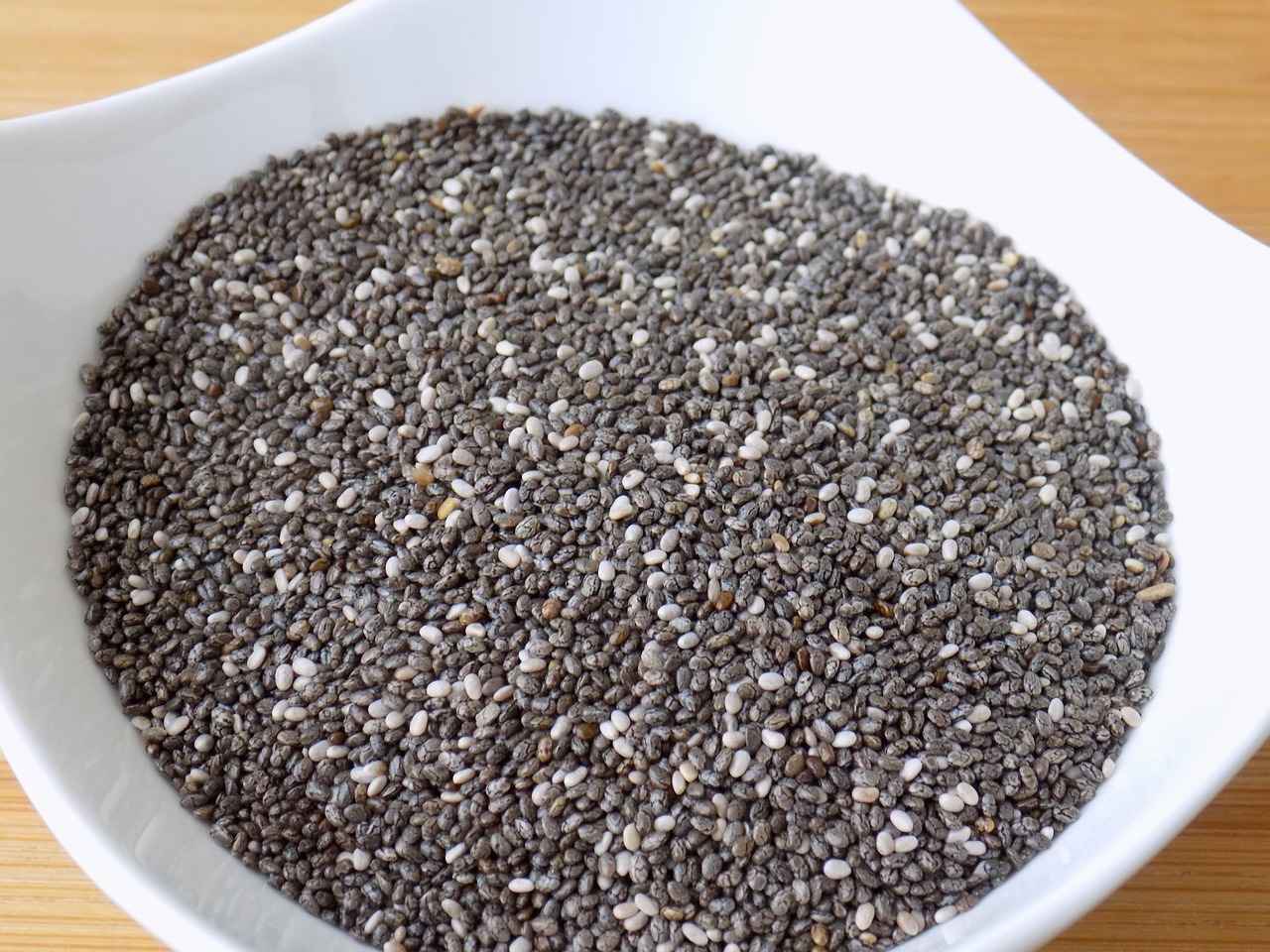
How Do Chia Seeds Aid in Weight Management?
Chia seeds have gained significant attention in the health and wellness community, particularly for their potential role in weight management. These tiny seeds are not only packed with essential nutrients but also offer unique properties that can aid in controlling appetite and enhancing feelings of fullness. This section delves into how chia seeds can support your weight loss journey.
One of the primary reasons chia seeds are effective for weight loss is their high fiber content. A single ounce (about 28 grams) of chia seeds contains approximately 11 grams of fiber, which is more than a third of the recommended daily intake for adults. This fiber is predominantly soluble, meaning it absorbs water and forms a gel-like substance in the stomach, which can significantly increase feelings of satiety.
The gel-like consistency formed by chia seeds when they absorb water slows down the digestion process. This slow digestion helps keep you feeling full for a longer period, reducing the likelihood of overeating or snacking between meals. Studies have shown that individuals who consume high-fiber foods, such as chia seeds, tend to consume fewer calories overall, which can lead to weight loss over time.
In addition to promoting satiety, chia seeds can help control appetite through their impact on blood sugar levels. The fiber in chia seeds slows the absorption of sugar into the bloodstream, preventing spikes and crashes in blood sugar that can lead to cravings and increased hunger. By stabilizing blood sugar levels, chia seeds can help you maintain a more balanced appetite throughout the day.
- Add to Smoothies: Blend chia seeds into your morning smoothie for an added boost of fiber and nutrients.
- Mix into Yogurt: Stir chia seeds into yogurt for a nutritious snack that keeps you full.
- Use in Baking: Incorporate chia seeds into your baking recipes, such as muffins or pancakes, for added texture and health benefits.
- Make Chia Pudding: Soak chia seeds in milk or a milk alternative overnight to create a delicious and satisfying pudding.
While chia seeds are generally safe for most people, it’s important to consume them in moderation. Due to their high fiber content, excessive intake can lead to digestive discomfort, including bloating or gas. It is advisable to start with a small amount and gradually increase your intake to allow your body to adjust.
In conclusion, chia seeds are a versatile and nutrient-dense food that can significantly aid in weight management. Their high fiber content promotes satiety and helps control appetite, making them an excellent addition to any weight loss strategy. By incorporating chia seeds into your diet in various ways, you can harness their benefits while enjoying a delicious and healthy lifestyle.
What Role Does Fiber Play in Weight Loss?
Fiber is an essential component of a healthy diet, particularly when it comes to weight management and digestive health. It is a type of carbohydrate that the body cannot digest, which means it passes through the digestive system relatively intact. This unique characteristic of fiber makes it a powerful tool for those looking to lose weight.
One of the most significant benefits of fiber is its ability to promote a feeling of fullness. When you consume foods high in fiber, they tend to expand in your stomach and slow down the process of digestion. This delayed digestion can lead to reduced hunger and less frequent snacking, ultimately aiding in weight loss efforts. Chia seeds, in particular, are an excellent source of soluble fiber. Just two tablespoons of chia seeds contain about 10 grams of fiber, which can significantly contribute to your daily intake.
In addition to promoting satiety, fiber plays a critical role in regulating blood sugar levels. Foods rich in fiber can slow the absorption of sugar into the bloodstream, preventing spikes in blood sugar that can lead to cravings and overeating. This is especially beneficial for individuals managing diabetes or those looking to maintain steady energy levels throughout the day.
Moreover, fiber aids in digestive health by promoting regular bowel movements and preventing constipation. A healthy digestive system is crucial for effective weight management, as it ensures that the body efficiently eliminates waste and absorbs nutrients. Chia seeds, with their ability to absorb water and form a gel-like substance, can help keep the digestive tract functioning smoothly.
Incorporating fiber-rich foods like chia seeds into your diet can also positively impact your gut microbiome. A healthy gut is linked to numerous health benefits, including improved metabolism and reduced inflammation, both of which can support weight loss.
- Increased Satiety: High fiber content keeps you feeling full longer.
- Blood Sugar Regulation: Helps stabilize blood sugar levels to reduce cravings.
- Improved Digestion: Promotes regular bowel movements and gut health.
- Enhanced Nutrient Absorption: Aids in the efficient absorption of nutrients from food.
To maximize the weight loss benefits of chia seeds, consider adding them to smoothies, yogurt, or oatmeal. Their mild flavor and unique texture make them a versatile ingredient that can easily be incorporated into various meals. Additionally, remember to pair chia seeds with a balanced diet and regular physical activity for optimal results.
In conclusion, fiber plays a crucial role in weight loss by promoting satiety, regulating blood sugar levels, and supporting digestive health. Chia seeds are a fantastic source of fiber that can aid in these processes, making them an excellent addition to any weight management plan. By understanding the importance of fiber and incorporating it into your diet, you can take significant steps towards achieving your weight loss goals.
How Does Fiber Impact Digestion?
Fiber plays a crucial role in maintaining a healthy digestive system. It is a type of carbohydrate that the body cannot digest, and it is essential for promoting regular bowel movements. One of the most effective sources of fiber is chia seeds, which are tiny black seeds that expand significantly when soaked in water. This unique property of chia seeds not only helps in preventing constipation but also enhances overall gut health.
When consumed, chia seeds absorb water and form a gel-like substance. This gel helps to bulk up the stool, making it easier to pass through the digestive tract. As a result, individuals who incorporate chia seeds into their diet often experience improved bowel regularity. Regular bowel movements are vital for eliminating waste and toxins from the body, thus contributing to a healthier digestive environment.
Moreover, the high fiber content in chia seeds aids in maintaining a balanced gut microbiome. A diverse and thriving population of gut bacteria is essential for optimal digestion and overall health. The soluble fiber in chia seeds acts as a prebiotic, providing nourishment for beneficial gut bacteria. This not only helps in digestion but also supports the immune system and may reduce the risk of digestive disorders.
In addition to promoting regularity and supporting gut health, chia seeds can also help in managing digestive discomfort. Many people experience bloating or gas due to dietary choices. The inclusion of chia seeds in meals can help alleviate these symptoms by improving digestive efficiency and reducing the likelihood of constipation.
Another important aspect of fiber is its ability to regulate the digestive process. By slowing down the absorption of nutrients, fiber helps maintain stable blood sugar levels. This is particularly beneficial for individuals who are managing conditions such as diabetes, as it prevents spikes in blood sugar that can lead to further digestive complications.
In summary, the impact of fiber on digestion is profound. Incorporating chia seeds into your diet can significantly enhance digestive health by promoting regular bowel movements, supporting gut microbiota, and alleviating digestive discomfort. With their numerous benefits, chia seeds are an excellent addition to a balanced diet, ensuring that your digestive system functions optimally.
- Promotes Regular Bowel Movements: Helps prevent constipation and ensures smooth digestion.
- Supports Gut Health: Acts as a prebiotic, nourishing beneficial gut bacteria.
- Reduces Digestive Discomfort: Alleviates symptoms like bloating and gas.
- Regulates Blood Sugar Levels: Slows nutrient absorption, stabilizing blood sugar.
Incorporating chia seeds into your daily meals can be simple and enjoyable. They can be added to smoothies, oatmeal, yogurt, or even baked goods. By making chia seeds a regular part of your diet, you can harness their digestive benefits and contribute to your overall health and well-being.
Can Chia Seeds Help Regulate Blood Sugar Levels?
Chia seeds have gained significant attention in recent years, and for good reason. These tiny seeds are not only versatile and easy to incorporate into meals but also boast a wide array of health benefits. One of the most notable advantages of chia seeds is their potential to help regulate blood sugar levels. This is particularly important for individuals managing diabetes or those at risk of developing this condition.
The fiber content in chia seeds is a key factor in their ability to stabilize blood sugar levels. When consumed, the soluble fiber forms a gel-like consistency in the digestive tract. This process slows down the digestion and absorption of carbohydrates, leading to a more gradual release of glucose into the bloodstream. This gradual release helps prevent spikes in blood sugar, which can be particularly beneficial for individuals with diabetes.
Unlike many other seeds, chia seeds are incredibly rich in both soluble and insoluble fiber. Soluble fiber aids in slowing digestion, while insoluble fiber promotes regular bowel movements. Together, they create a balanced approach to digestive health, which indirectly supports blood sugar regulation. Furthermore, chia seeds are low in carbohydrates, making them an excellent choice for those monitoring their carb intake.
Several studies have highlighted the benefits of chia seeds in managing blood sugar levels. For instance, research published in the Journal of Nutrition found that participants who consumed chia seeds experienced improved glycemic control compared to those who did not. This suggests that incorporating chia seeds into a balanced diet may help individuals maintain stable blood sugar levels.
- Chia Pudding: Mix chia seeds with almond milk or yogurt and let them sit overnight for a nutritious breakfast.
- Smoothies: Add a tablespoon of chia seeds to your favorite smoothie for an extra boost of fiber and nutrients.
- Baking: Incorporate chia seeds into muffins, bread, or pancakes for added texture and health benefits.
- Salads: Sprinkle chia seeds on salads for a crunchy texture and nutritional enhancement.
While chia seeds offer numerous health benefits, moderation is key. Overconsumption can lead to digestive discomfort due to their high fiber content. It is advisable to gradually introduce chia seeds into your diet and ensure adequate hydration, as they can absorb significant amounts of water.
In summary, chia seeds are a powerful ally in blood sugar regulation thanks to their unique fiber composition and low carbohydrate content. By incorporating these tiny seeds into your daily meals, you can enjoy their numerous health benefits while supporting stable blood sugar levels. Whether you sprinkle them on your meals or blend them into smoothies, chia seeds are a simple yet effective way to enhance your diet.
What Are the Heart Health Benefits of Chia Seeds?
Chia seeds have gained popularity as a superfood, and for good reason. These tiny seeds are not only versatile in culinary applications but also packed with nutrients that can significantly benefit your health. Among their many advantages, their contribution to heart health stands out due to their high content of omega-3 fatty acids, fiber, and antioxidants. This section delves into the various ways chia seeds promote cardiovascular wellness.
Chia seeds are one of the richest plant-based sources of omega-3 fatty acids, specifically alpha-linolenic acid (ALA). Omega-3s are known for their ability to reduce inflammation and lower blood pressure, which are crucial for maintaining a healthy heart. Research indicates that regular consumption of omega-3 fatty acids can lead to a decrease in the risk of heart disease by improving lipid profiles and reducing triglyceride levels.
The soluble fiber found in chia seeds plays a vital role in managing cholesterol levels. When consumed, this fiber forms a gel-like substance in the gut, which can help to bind with cholesterol and promote its excretion from the body. Studies have shown that incorporating chia seeds into your diet can lead to a reduction in both total and LDL cholesterol, often referred to as “bad” cholesterol.
High blood pressure is a significant risk factor for cardiovascular diseases. Chia seeds can contribute to better blood pressure management due to their rich nutrient profile. They are high in potassium, a mineral that helps to relax blood vessel walls, thereby reducing blood pressure. Additionally, the omega-3 fatty acids in chia seeds have been linked to vasodilation, which further aids in maintaining healthy blood pressure levels.
Chia seeds are also packed with antioxidants, which play a crucial role in protecting heart health. Antioxidants help combat oxidative stress and inflammation, both of which are linked to heart disease. By neutralizing free radicals in the body, the antioxidants found in chia seeds can help reduce the risk of chronic diseases, including those affecting the cardiovascular system.
The high fiber content in chia seeds not only aids in digestion but also contributes significantly to heart health. Fiber helps lower cholesterol and blood pressure, promotes healthy blood sugar levels, and supports weight management—all of which are important factors in preventing heart disease. The soluble fiber in chia seeds can help stabilize blood sugar levels, reducing the risk of developing type 2 diabetes, a condition that is closely linked to heart health.
Adding chia seeds to your diet is easy and versatile. You can sprinkle them on salads, blend them into smoothies, or mix them into yogurt or oatmeal. They can also be used as a thickening agent in soups and sauces. A popular method is to create chia pudding by soaking the seeds in milk or a milk alternative, allowing them to absorb the liquid and form a gel-like texture.
In conclusion, the heart health benefits of chia seeds are extensive and well-supported by research. Their rich content of omega-3 fatty acids, fiber, and antioxidants makes them an excellent addition to any diet aimed at improving cardiovascular health. By incorporating chia seeds into your meals, you can take proactive steps toward maintaining a healthy heart.
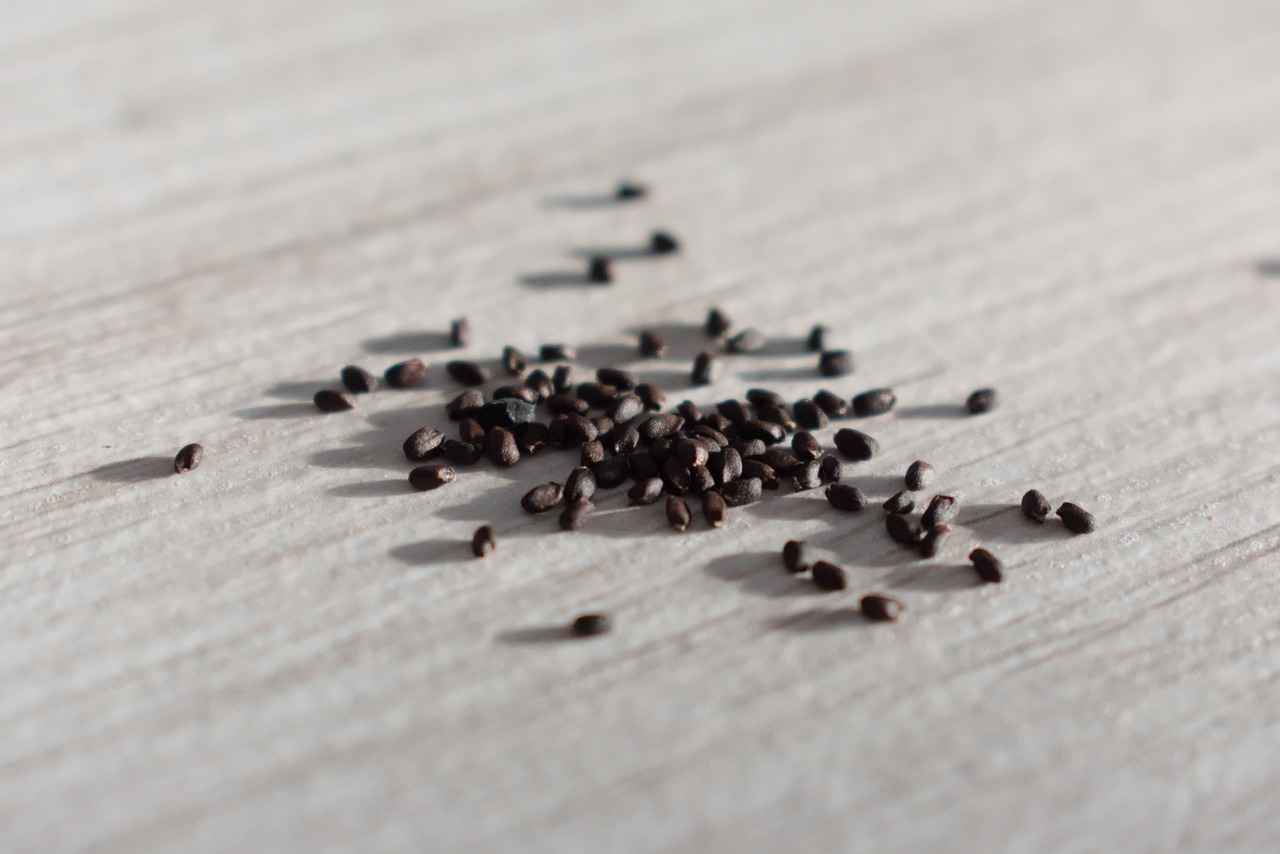
Do Chia Seeds Promote Healthy Skin?
Chia seeds have gained popularity in recent years, not only for their nutritional benefits but also for their positive effects on skin health. Packed with antioxidants and essential fatty acids, chia seeds can play a vital role in maintaining a youthful and vibrant complexion. This section delves into how these tiny seeds can significantly enhance skin wellness.
Antioxidants are crucial for protecting the skin from damage caused by free radicals, which can lead to premature aging. Chia seeds are rich in antioxidants such as quercetin and chlorogenic acid. These compounds help to neutralize free radicals, reducing oxidative stress and promoting a healthier skin appearance.
Chia seeds are an excellent source of omega-3 fatty acids, particularly alpha-linolenic acid (ALA). Omega-3s are known for their anti-inflammatory properties, which can help to soothe irritated skin and reduce redness. Additionally, these fatty acids support the skin’s lipid barrier, keeping it hydrated and plump.
The unique ability of chia seeds to absorb water makes them a powerful ally in maintaining skin hydration. When consumed, chia seeds can hold up to 12 times their weight in water, helping to keep the body well-hydrated. Proper hydration is essential for achieving a radiant complexion, as it helps to prevent dryness and flakiness.
As we age, skin elasticity tends to decline, leading to sagging and wrinkles. The high levels of protein found in chia seeds can aid in collagen production, a protein crucial for maintaining skin structure and firmness. By incorporating chia seeds into your diet, you may help to promote a more youthful appearance.
The anti-inflammatory properties of chia seeds can also be beneficial for those struggling with acne and blemishes. By reducing inflammation and balancing oil production, chia seeds can help to prevent breakouts and promote clearer skin. Their rich nutrient profile supports overall skin health, making them a valuable addition to an acne-fighting regimen.
- Add chia seeds to smoothies for a nutrient boost.
- Sprinkle them on salads for added crunch and nutrition.
- Mix chia seeds into oatmeal or yogurt for a hearty breakfast.
- Use chia seeds as a thickening agent in soups and sauces.
Incorporating chia seeds into your daily routine can be simple and delicious. Whether you prefer them whole or ground, these tiny seeds can enhance your meals while providing significant benefits for your skin.
In summary, chia seeds are a powerhouse of nutrients that can greatly benefit skin health. Their antioxidant properties, essential fatty acids, and ability to promote hydration make them an excellent choice for anyone looking to maintain youthful and vibrant skin. By adding chia seeds to your diet, you can support not only your overall health but also achieve a glowing complexion.
How Do Antioxidants Benefit Skin Health?
Antioxidants play a vital role in maintaining healthy skin by combating oxidative stress, which is a significant contributor to premature aging. When the skin is exposed to environmental aggressors such as pollution, UV rays, and toxins, it undergoes oxidative stress, leading to cellular damage. This damage manifests as fine lines, wrinkles, and dullness, making antioxidants essential for skin health.
What Are Antioxidants?
- Antioxidants are molecules that neutralize free radicals, unstable atoms that can cause damage to cells.
- They can be found in various foods, particularly fruits, vegetables, nuts, and seeds.
- Chia seeds, in particular, are rich in antioxidants, notably quercetin, chlorogenic acid, and caffeic acid.
How Do Chia Seeds Contribute to Skin Health?
Chia seeds are not only a powerhouse of nutrients but also a significant source of antioxidants. Incorporating these seeds into your diet can lead to various skin benefits:
- Reduction of Inflammation: Antioxidants in chia seeds help reduce inflammation, which can lead to skin conditions such as acne and rosacea.
- Improved Elasticity: The antioxidants help improve skin elasticity, making it appear firmer and more youthful.
- Hydration: Chia seeds can absorb up to 12 times their weight in water, promoting hydration and plumpness in the skin.
Why Is Hydration Important for Skin Health?
Hydrated skin is crucial for maintaining a youthful appearance. When skin cells are well-hydrated, they function optimally, leading to a smoother and more radiant complexion. Dehydration can cause the skin to look dull and accentuate fine lines, making antioxidants, such as those found in chia seeds, even more essential.
Can Antioxidants Slow Down Aging?
Yes, antioxidants can significantly slow down the aging process. By neutralizing free radicals, they help mitigate the oxidative damage that contributes to aging. Regular consumption of antioxidant-rich foods, including chia seeds, can lead to:
- Fewer Fine Lines: Antioxidants can help reduce the appearance of fine lines and wrinkles.
- Even Skin Tone: They can help in reducing pigmentation and promoting a more even skin tone.
- Enhanced Radiance: Antioxidants contribute to a healthy glow, making the skin look vibrant.
How to Incorporate Chia Seeds into Your Diet?
Integrating chia seeds into your daily routine is simple. Here are a few ideas:
- Add chia seeds to your smoothies for an extra nutrient boost.
- Mix them into yogurt or oatmeal for a nutritious breakfast.
- Use chia seeds in baking as a healthy alternative to eggs or as a thickening agent in soups and sauces.
In conclusion, the benefits of antioxidants found in chia seeds are numerous and impactful for skin health. By incorporating these tiny seeds into your diet, you can enhance your skin’s appearance and overall health, ensuring you maintain a youthful glow for years to come.
Can Chia Seeds Help Hydrate the Body?
Chia seeds, often hailed as a superfood, possess remarkable properties that can significantly enhance hydration. These tiny seeds, derived from the Salvia hispanica plant, have the unique ability to absorb water, making them a valuable addition to your diet, especially for those seeking to maintain optimal fluid balance.
When chia seeds are mixed with liquid, they can absorb up to 12 times their weight in water. This absorption creates a gel-like substance, which not only aids in hydration but also helps slow down the absorption of other nutrients. This means that when consumed, chia seeds can help keep you feeling full and hydrated for longer periods, making them an ideal snack for those on the go.
How Do Chia Seeds Contribute to Fluid Balance?
- Chia seeds act as a natural reservoir of water, gradually releasing it into the body. This property is especially beneficial for athletes and individuals engaging in strenuous activities, as it helps maintain hydration levels during workouts.
- The gel-forming ability of chia seeds can also assist in preventing dehydration, particularly in hot weather or during prolonged physical exertion.
Why Is Hydration Important?
Staying adequately hydrated is crucial for various bodily functions, including:
- Regulating body temperature
- Maintaining joint lubrication
- Supporting cellular functions
- Enhancing nutrient transport and absorption
Inadequate hydration can lead to fatigue, dizziness, and impaired cognitive function. Incorporating chia seeds into your diet can be a simple yet effective way to ensure you are meeting your body’s hydration needs.
How to Incorporate Chia Seeds for Better Hydration
There are numerous ways to include chia seeds in your daily routine:
- Chia Pudding: Combine chia seeds with almond milk or coconut water and let them sit overnight. This creates a delicious and hydrating pudding.
- Smoothies: Add a tablespoon of chia seeds to your favorite smoothie for an extra hydration boost.
- Infused Water: Soak chia seeds in water with slices of fruit for a refreshing drink that also provides hydration.
It’s important to note that while chia seeds are an excellent source of hydration, they should be consumed with adequate fluids. This ensures that they can perform their hydrating functions effectively within the body.
In summary, chia seeds are not only a nutrient-dense food but also a powerful ally in maintaining hydration. By incorporating them into your diet, you can help support your body’s fluid balance and overall health.

What Are the Benefits of Chia Seeds for Bone Health?
Chia seeds have gained popularity as a superfood, and one of their standout benefits is their contribution to bone health. These tiny seeds are packed with essential minerals that play a crucial role in maintaining strong bones. This section delves into the specific nutrients found in chia seeds and their significance for bone density and overall skeletal health.
Chia seeds are an excellent source of calcium, which is vital for bone strength. In fact, just two tablespoons of chia seeds provide approximately 18% of the daily recommended intake of calcium. Calcium is essential not only for building bones but also for maintaining bone mass as we age. It helps prevent conditions such as osteoporosis, which can lead to fractures and weakened bones.
In addition to calcium, chia seeds are rich in magnesium. This mineral is crucial for converting vitamin D into its active form, which in turn helps the body absorb calcium effectively. A deficiency in magnesium can lead to decreased bone density, making it imperative to include magnesium-rich foods like chia seeds in your diet. Just two tablespoons of chia seeds can provide around 24% of the daily recommended intake of magnesium.
Furthermore, chia seeds contain phosphorus, another essential mineral for bone health. Phosphorus works in conjunction with calcium to form calcium phosphate, which is a primary component of bone tissue. Adequate phosphorus intake is necessary for maintaining the structural integrity of bones, and chia seeds can contribute significantly to meeting your daily phosphorus needs.
One of the unique aspects of chia seeds is their high content of omega-3 fatty acids, particularly alpha-linolenic acid (ALA). While omega-3s are often celebrated for their heart health benefits, they also play a role in bone health. Studies suggest that omega-3 fatty acids can help improve bone density and reduce the risk of fractures, making chia seeds a double-duty food for those concerned about their skeletal health.
Incorporating chia seeds into your diet is simple and versatile. They can be added to smoothies, yogurt, oatmeal, or baked goods. When soaked in water, chia seeds expand and form a gel-like consistency, making them a great thickening agent for puddings and sauces. This not only enhances the texture of dishes but also boosts their nutritional value.
For those looking to improve their bone health, chia seeds offer a convenient and nutritious option. With their impressive profile of calcium, magnesium, phosphorus, and omega-3 fatty acids, these tiny seeds are a powerhouse of nutrients that support bone integrity and strength. By integrating chia seeds into your daily meals, you can take proactive steps toward maintaining healthy bones throughout your life.
In summary, the benefits of chia seeds for bone health are multifaceted. Their rich mineral content, combined with healthy fats, makes them an excellent choice for anyone looking to enhance their bone density and overall skeletal well-being. Embrace the power of chia seeds and enjoy the myriad of health benefits they offer!
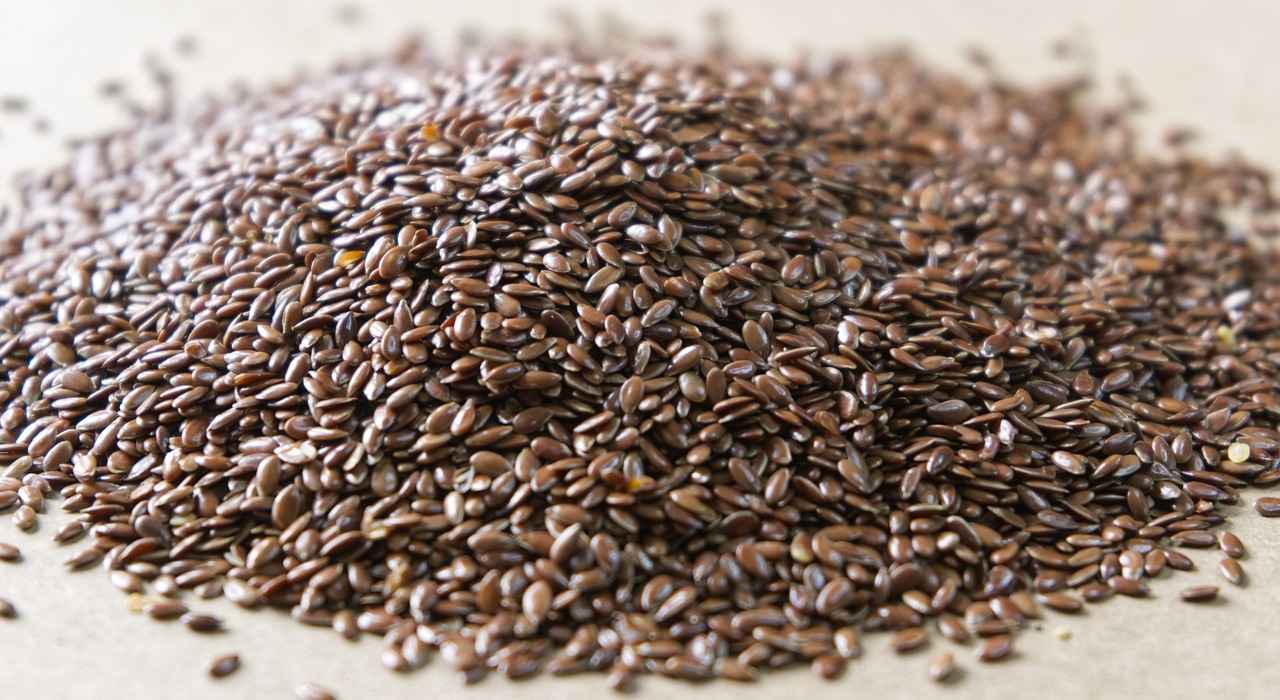
How Can Chia Seeds Enhance Energy Levels?
Chia seeds are often hailed as a superfood due to their impressive nutritional profile. One of the standout benefits of incorporating chia seeds into your diet is their ability to enhance energy levels, making them a perfect choice for anyone looking to boost their performance during workouts or throughout the day.
Chia seeds are packed with a variety of nutrients that contribute to sustained energy. They are rich in complex carbohydrates, which provide a slow and steady release of energy, helping to avoid the spikes and crashes associated with sugary snacks. Additionally, they contain a significant amount of protein, which is essential for muscle repair and growth.
One of the unique properties of chia seeds is their ability to absorb liquid, expanding up to 12 times their weight. This characteristic not only aids in hydration but also helps create a gel-like substance in the stomach, which can slow down digestion. As a result, chia seeds can help maintain energy levels over a longer period, making them an excellent choice for a pre-workout snack.
- Omega-3 Fatty Acids: These healthy fats are known to support brain function and reduce inflammation, which can enhance overall energy levels.
- Fiber: The high fiber content not only promotes digestive health but also helps in maintaining steady blood sugar levels, preventing energy dips.
- Vitamins and Minerals: Chia seeds are a source of essential nutrients like calcium, magnesium, and iron, all of which play a role in energy metabolism.
Integrating chia seeds into your meals is simple and versatile. Here are some practical ways to enjoy them:
- Add chia seeds to smoothies for a nutrient boost.
- Mix them into yogurt or oatmeal for added texture and health benefits.
- Use them in baking, such as in muffins or energy bars.
Certainly! Here’s a quick recipe for a Chia Seed Energy Pudding:
Ingredients:- 1/4 cup chia seeds- 1 cup almond milk (or any milk of choice)- 1 tablespoon honey or maple syrup- 1/2 teaspoon vanilla extract- Fresh fruits and nuts for toppingInstructions:1. In a bowl, combine chia seeds, almond milk, honey, and vanilla extract.2. Stir well and let it sit for 5 minutes, then stir again to avoid clumping.3. Refrigerate for at least 2 hours or overnight.4. Serve topped with fresh fruits and nuts.
Yes, chia seeds can be beneficial for post-workout recovery as well. Their protein content aids in muscle recovery, while the omega-3 fatty acids help reduce inflammation. Including chia seeds in your post-workout meal can promote quicker recovery and replenish your energy stores.
In conclusion, chia seeds are a fantastic way to enhance energy levels, thanks to their unique nutrient composition. Whether consumed before or after a workout, they offer a range of benefits that can help you stay energized throughout your day.

Are There Any Risks Associated with Eating Chia Seeds?
Chia seeds are often hailed as a superfood due to their impressive nutritional profile and health benefits. However, it is essential to consider the potential risks associated with their consumption. Understanding these risks can help you enjoy chia seeds safely and effectively.
While chia seeds are generally safe for most people, some individuals may experience side effects, especially if consumed in large quantities. Here are some potential side effects:
- Digestive Issues: Due to their high fiber content, consuming too many chia seeds at once can lead to bloating, gas, or diarrhea. It is advisable to gradually increase your intake to allow your digestive system to adjust.
- Choking Hazard: Chia seeds can absorb up to 12 times their weight in water. If consumed dry, they may expand in the throat, posing a choking risk. Always soak chia seeds in water or another liquid before consumption.
- Allergic Reactions: Although rare, some individuals may be allergic to chia seeds. Symptoms can include skin rashes, itching, or gastrointestinal discomfort. If you experience these symptoms, discontinue use and consult a healthcare professional.
To enjoy the benefits of chia seeds while minimizing risks, consider the following tips:
- Start Small: Begin with a small amount, such as 1 teaspoon, and gradually increase to 1-2 tablespoons per day as your body adjusts to the added fiber.
- Hydrate: Always soak chia seeds in water, juice, or smoothies before consuming. This helps them expand and prevents choking.
- Balance Your Diet: Incorporate chia seeds as part of a balanced diet, ensuring you consume a variety of foods rich in nutrients.
While chia seeds are safe for most individuals, certain groups may need to exercise caution:
- Individuals with Digestive Disorders: Those with conditions like irritable bowel syndrome (IBS) or inflammatory bowel disease (IBD) should consult a healthcare provider before adding chia seeds to their diet.
- Pregnant or Nursing Women: While chia seeds can be beneficial, pregnant or nursing women should consult their healthcare provider to ensure they are safe for their specific circumstances.
- People on Blood Thinners: Chia seeds can have a mild blood-thinning effect due to their omega-3 fatty acids. If you are on anticoagulant medications, consult your doctor before including chia seeds in your diet.
Chia seeds may interact with certain medications, particularly those affecting blood sugar levels and blood pressure. If you are taking medication for diabetes or hypertension, it’s crucial to discuss chia seed consumption with your healthcare provider to avoid any adverse effects.
In summary, while chia seeds can offer numerous health benefits, being aware of the potential risks and how to consume them safely is essential. By following the guidelines outlined above, you can enjoy this nutrient-dense superfood while minimizing any adverse effects.
Frequently Asked Questions
- What are chia seeds?
Chia seeds are tiny black seeds from the Salvia hispanica plant, native to Mexico. They are packed with nutrients, including fiber, protein, omega-3 fatty acids, and various vitamins and minerals.
- How can I incorporate chia seeds into my diet?
You can easily add chia seeds to smoothies, yogurt, oatmeal, or baked goods. They can also be soaked in water or milk to create a gel-like consistency, perfect for puddings or as a thickening agent in recipes.
- Are there any side effects of eating chia seeds?
While chia seeds are generally safe, consuming them in excess may lead to digestive issues like bloating or gas. It’s best to start with a small amount and increase gradually, ensuring you drink plenty of water.
- Can chia seeds help with weight loss?
Yes! Chia seeds are high in fiber, which helps you feel full longer, potentially reducing overall calorie intake. Their ability to absorb water also contributes to a feeling of fullness.
- How do chia seeds benefit heart health?
Chia seeds are rich in omega-3 fatty acids, which are known to lower inflammation and improve heart health by reducing cholesterol levels and regulating blood pressure.
- Do chia seeds have any benefits for skin health?
Absolutely! The antioxidants and essential fatty acids in chia seeds can help combat oxidative stress, keeping your skin looking youthful and vibrant.
